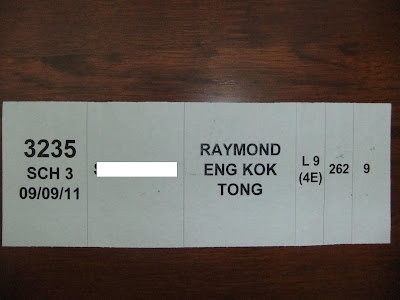There has been much debate on whether Singapore should nationalize its train services, operated by SMRT and SBS Transit, in order to achieve optimal results. Both nationalization as well as privatization have their pros and cons. Simply believing that either one is more beneficial than the other is strictly wrong.
Overall, I am certain that financial assistance from the government plus the efficiency of the private-sector is the best way forward for the public transportation model here. But is there an adequate balance between public and private currently?
When Britain transferred ownership of its rail services to the private sector in 1993, they were classified into two groups, train operations and railways. Railtrack, defunct for more than ten years, was the company in charge of the tracks, tunnels, signalling and stations then. A number of train operators functioned by hiring Railtrack for its services.
The Hatfield Crash in 2000 was the main cause of Railtrack's collapse. As the problem escalated, in the following year, Railtrack even requested the government for funding, which it controversially utilized to pay dividends to its shareholders.
In the end, Network Rail, a company limited by guarantee, replaced Railtrack in 2006. Though it is labelled as a private company, Network Rail does not pay dividends and uses its profits enhance the rail system. Network Rail is no doubt a good reference for Singapore to study.
With increasing ridership and more new lines, train operators face a huge challenge in providing quality service to commuters while maintaining infrastructure. In addition, as profit-based corporations, SMRT and SBS Transit, have to secure their shareholders' interests.
A good idea is to have the Land Transport Authority (LTA) transfer the job of infrastructure maintenance to another company. A Singaporean version of Network Rail can be formed and its roles include managing railways, overseeing signal systems and even gaining ownership the retail space in stations.
SMRT and SBS Transit will employ this company for its services and all profits made by it will be reinvested back into the rail network. Supposing that is a need for massive system upgrades, the company will be directly funded by the transport ministry.
With the existence of a network rail operator, SMRT and SBS Transit can become genuine train operators that aim to provide quality commuter experience. The separation of maintaining infrastructure and train operations, where the government continues to work with the private-sector, may be an effective way to improve Singapore's public transportation after all.




No comments:
Post a Comment